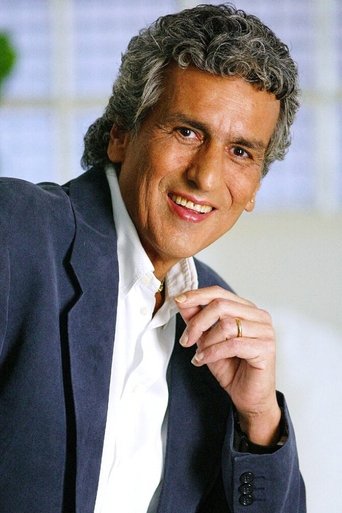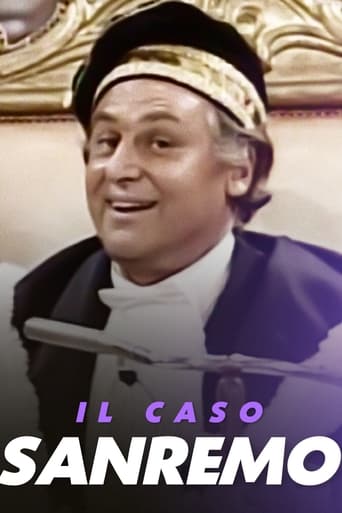

Toto Cutugno
Salvatore "Toto" Cutugno (born 7 July 1943) is an Italian pop singer-songwriter and musician. He is best known for his worldwide hit song, "L'Italiano", released on his 1983 album of the same title. Cutugno also won the Eurovision Song Contest 1990 held in Zagreb, Croatia, SFR Yugoslavia, with the song "Insieme: 1992", for which he wrote both lyrics and music. Toto Cutugno was born in Fosdinovo, Lunigiana, (Tuscany), to a Sicilian father from Barcellona Pozzo di Gotto and a homemaker mother. Shortly after his birth the family moved to La Spezia (Liguria). He began his musical career as a drummer, and later formed an Italo disco band together with Lino Losito and Mario Limongelli called Albatros. He also started a career as songwriter, contributing some of French-American singer Joe Dassin most well-known songs such as L'été indien, Et si tu n'existais pas and Le Jardin du Luxembourg (written with Vito Pallavicini). He also co-wrote Dalida's Monday Tuesday... Laissez moi danser ("Voglio l'anima"), which enjoyed Platinum record status shortly after its release. In 1976, Albatros participated for the first time in the Sanremo Music Festival finishing in third place with the song Volo 504. Following another chart success with the song Santamaria De Portugal Albatros effectively disbanded, and Cutugno concentrated on his solo career. In 1980 Cutugno returned to the Sanremo Music Festival and won with the song Solo noi. However, Cutugno's affiliation with the festival is mostly remembered for L'italiano ("The Italian"), a song he presented in 1983. Originally intended for Adriano Celentano, who declined to sing it, L'italiano's recapitulation of some of Italy's most popular social traits, made the song very popular with Italian expats. Although the song finished only fifth in Sanremo, it went on to become Cutugno's biggest international hit. Cutugno would finish second in six more editions of Sanremo festival: in 1984 with the song Serenata ("Serenade"); in 1987 with Figli ("Sons" or "Children"); in 1988 with Emozioni ("Emotions"); in 1989 with the song Le mamme ("Mothers"); in 1990 with the song Gli amori ("Loves", but entitled "Good Love Gone Bad" in Ray Charles's version); and in 2005 with Annalisa Minetti with the song Come noi nessuno al mondo ("No One Else in the World Like Us"). Toto Cutugno participated to the festival a total of 13 times. In 1990 Cutugno won the Eurovision Song Contest in Zagreb with his own composition, "Insieme: 1992" ("Together: 1992"), a ballad which celebrated European political integration and the establishment of the European Union. Along with Gigliola Cinquetti, Italy's second Eurovision winner, he presented the 1991 contest, which was staged in Rome as a result of his victory. Aged 46 years, 302 days, Cutugno became the oldest winner of the contest to date, surpassing the record set by André Claveau in 1958. Cutugno's record stood until 2000. He was also the last winner for Italy until Måneskin in 2021. ... Source: Article "Toto Cutugno" from Wikipedia in English, licensed under CC-BY-SA 3.0.
Read bio at tmdb | Read bio at Wikipedia
- Born:
- Jul 7, 1943 In Fosdinovo, Tuscany, Italy
- Movie/TV Credits:
- 15
- First Appeared:
- In the movie Чао
- Latest Project:
- Movie Ciao, 2021! 2022-01-01
| Movie | Чао | 2025 | |
| Movie | Ciao, 2021! | Anton Kutuzov | 2022-01-01 |
| Movie | The A-Z of Eurovision | Self - Presenter (archive footage) | 2020-05-16 |
| Movie | Capitan Basilico 2 - I Fantastici 4+4 | 2011-12-02 | |
| Series | Star Academy | Self | 2001-10-20 |
| Series | Starnacht am Wörthersee | Self | 2000-08-25 |
| Series | Musik liegt in der Luft | Self - Singer | 1991-02-02 |
| Series | The Sanremo Case | Self | 1990-01-27 |
| Series | Le monde est à vous | Self | 1987-09-13 |
| Series | Show & Co. mit Carlo | Self | 1984-03-29 |
| Series | Champs-Elysées | Self | 1982-01-16 |
| Series | Karussell | Self | 1977-04-05 |
| Series | Bitte umblättern | Self | 1977-04-20 |
| Series | Domenica In | Unknown | 1976-10-03 |
| Series | Eurovision Song Contest | Self - Presenter | 1956-05-24 |

